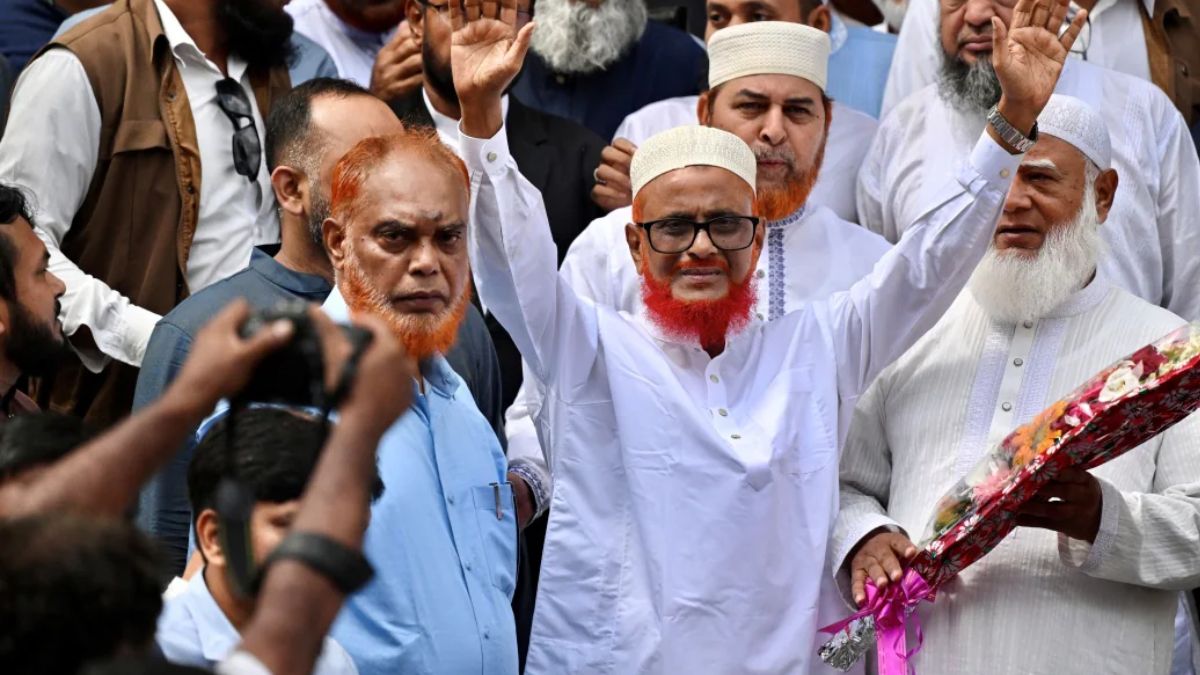In a move that has ignited sharp debate across Bangladesh’s political arena, the interim government led by Nobel laureate Muhammad Yunus has formally lifted the ban on Jamaat-e-Islami, the country’s largest Islamist party followed by the Appellate Division of Bangladesh’s Supreme Court order to reinstate of the Islamist party’s registration as a political party, reopening the door to electoral politics for a pro-Pakistan group long viewed as a symbol of divisive ideology and historical trauma.
The decision, announced through a Ministry of Home Affairs notice on Wednesday, claimed there was no “specific evidence” of Jamaat-e-Islami or its student wing, Islami Chhatra Shibir, engaging in any recent violent or subversive activity. However, the gravity of the party’s past continues to cast a long shadow over Bangladesh’s fragile democracy.
The burden of history
Jamaat-e-Islami’s reputation is indelibly linked to its opposition to Bangladesh’s 1971 war of liberation from Pakistan. The party not only opposed the creation of Bangladesh but actively collaborated with the Pakistani military, lending ideological and operational support to infamous paramilitary groups like the Al-Badr, Al-Shams and Razakars. These militias were implicated in mass killings, torture and the systematic rape of Bangladeshi women—atrocities that left as many as 300,000 people dead, according to conservative estimates.
Despite this dark legacy, the Jamaat steadily regained political relevance. By 2001, it was a key ally of the Bangladesh Nationalist Party (BNP) under Khaleda Zia, contributing two cabinet ministers and 17 members of Parliament to the BNP-led coalition.
Hasina’s reckoning
When Sheikh Hasina returned to power in 2009, she pursued a long-promised reckoning with war crimes. Her government established the International Crimes Tribunal, which led to the conviction and execution of several top Jamaat leaders for their role in the 1971 atrocities. By 2013, Bangladesh’s Supreme Court declared Jamaat-e-Islami unfit for electoral politics, stating that the party’s constitution violated the secular principles enshrined in the nation’s founding document.
Hasina further intensified her stance just days before being forced to resign on August 5, banning Jamaat outright and labeling it a terrorist and militant organisation. Yet the ban was more than a legal strike—it was a political line in the sand, reinforcing the Awami League’s narrative of nationalism and secularism.
A political resurrection
With Hasina ousted and in exile, the political winds have shifted dramatically. The Supreme Court under Chief Justice Syed Refaat Ahmed, has now ordered the Election Commission to restore Jamaat’s registration, paving the way for its return to the political battlefield. The court left the decision of allowing Jamaat to use its traditional “scale” symbol to the Election Commission, signaling a cautious but consequential rehabilitation of the controversial party.
This legal revival is not occurring in a vacuum. A recent meeting in London between BNP’s acting chairperson Tarique Rahman, his mother Khaleda Zia and Jamaat’s top leadership, including Ameer Shafiqur Rahman and Nayeb-e-Ameer Syeed Abdullah Muhammad Taher has set off speculation about a renewed alliance. Once estranged, the two former coalition partners appear to be mending ties, likely in anticipation of a political comeback.
Impact Shorts
More ShortsWhat Yunus stands to gain
For interim Prime Minister Muhammad Yunus, the lifting of the ban is not just a legal gesture but a calculated political maneuver. By restoring Jamaat’s political rights, Yunus positions himself as a champion of pluralism and electoral inclusivity, perhaps aiming to unify fragmented conservative and Islamist voter bases that had been politically orphaned during Hasina’s tenure.
Furthermore, Yunus may see in Jamaat a counterweight to the Awami League’s entrenched secular-nationalist narrative. With Hasina’s departure and the Awami League weakened, the interim government’s ability to manage transition and legitimacy could hinge on rallying broad-based support, even if that means aligning with groups once deemed untouchable.
A dangerous gamble?
Critics argue that this rehabilitation could jeopardise Bangladesh’s secular ethos and embolden regressive politics. Jamaat’s reentry into the electoral arena not only revives the wounds of 1971 but also threatens to upend the hard-won progress of the last decade in building a modern, inclusive democracy.
Analysts warn that while the immediate political calculus may favor Yunus and the BNP-Jamaat bloc, the long-term consequences of re-legitimising a party with such a violent and anti-liberation past could be profound. The scars of 1971 are not mere historical footnotes but they are central to Bangladeshi identity.
As the country braces for a new electoral cycle, the return of Jamaat-e-Islami marks a watershed moment. Whether this move heralds a renewed era of democratic pluralism or a dangerous regression will depend on how responsibly the political class navigates the stormy waters ahead.
)